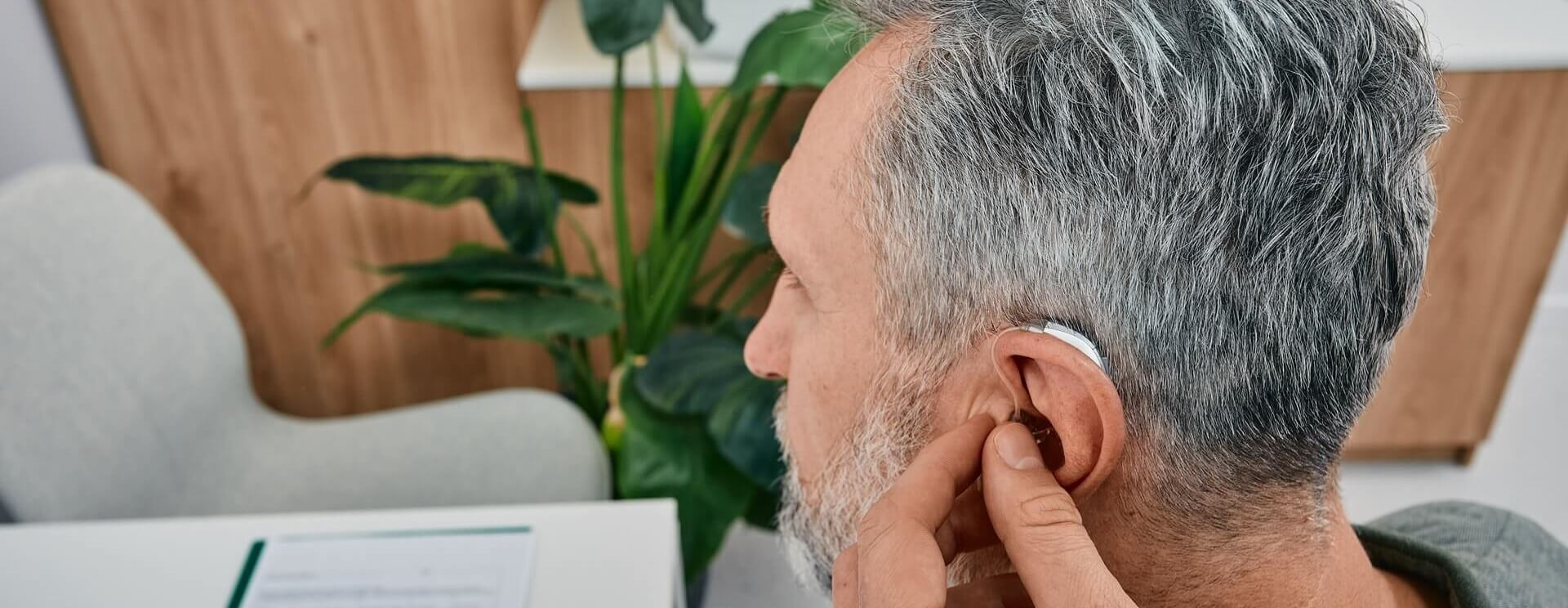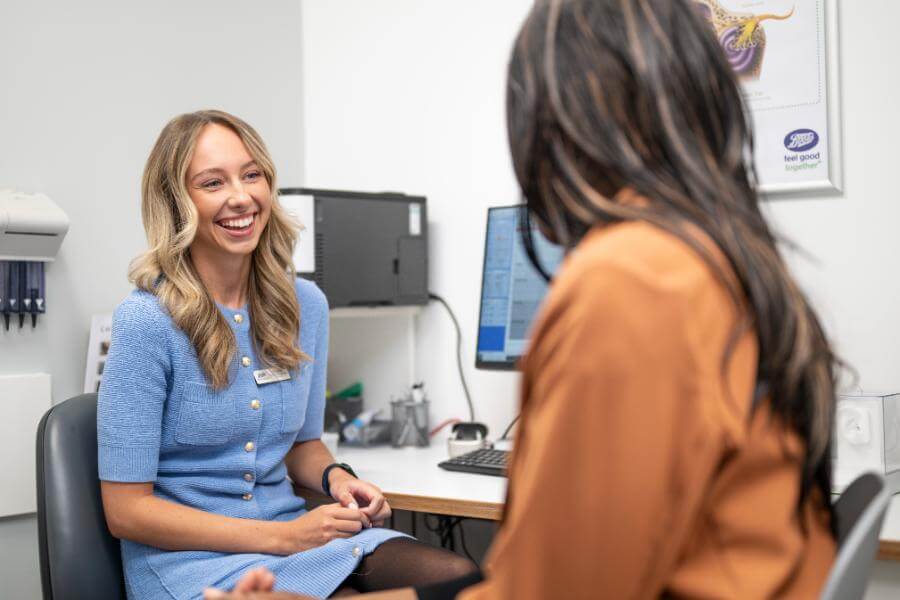7 tips for adjusting to new hearing aids effectively

7 tips for adjusting to new hearing aids effectively
5 minutes
Published 19 June 2021
Reviewed : 19 January 2025
If you’re experiencing hearing loss, hearing aids can provide the opportunity to be more independent and to more clearly hear everyday sounds such as conversations, doorbells or telephone calls. Similarly, they can also help to improve confidence and generally reduce the impact that hearing loss can have on your life. But they can take some getting used to.
Is there an adjustment period for hearing aids?
While, generally speaking, you should notice an instant difference in your hearing when using hearing aids, it can take up to four months to get completely used to them, and it may take even longer. This is because there are so many things to get used to - from the feeling in your ears to the change in your hearing; cleaning and maintenance to the various settings. But there’s no need to worry. Read on for our top tips if you’re struggling to adjust to your new hearing aids.
1. Patience and acceptance are key
It’s no surprise that many of us find it difficult to accept our hearing problems. And when you first begin to wear your hearing aids, it’s normal to feel overwhelmed. After all, if you’ve been struggling with your hearing for a while, a sudden influx of noise - from swallowing to chewing, TV to conversations - can seem like a lot. But if you are experiencing some early problems, when it comes to hearing aids it’s all about patience, and it can take a few weeks and fittings to adjust your hearing aid so it works for you, so keep going and don’t give up.
2. Keep your expectations realistic
You’ll likely experience some frustration when you first begin wearing your hearing aids. This is because it takes time for your brain to adjust to the new sounds you’re hearing, especially if you’ve been suffering from hearing loss for a while. For example, most of us learn, over time, to phase out insignificant background noises such as the humming of a fridge, the ticking of a clock or paper rustling. However, if you’ve not heard these sounds in a while, they can seem overly loud and disruptive. Similarly, if you’ve not heard well in years, the sudden flood of background noise can seem unbearable, especially when you're out and about.
But you shouldn’t take this to mean that hearing aids aren’t right for you. Instead, it’s all about managing your expectations and realising that a hearing aid won't equal a miracle. While your hearing will improve when using hearing aids, it won’t be perfectly restored, and success comes from being patient and realistic about your hearing capabilities.
3. Practice makes perfect
While your hearing aid audiologist will work with you to help you master the basics, when it comes to getting used to your new hearing aids, familiarising yourself with how they work and how to insert and remove them is key. Just like anything else, practice makes perfect, and you have to simply get used to them before they feel normal to you.
Start by wearing them at home first, and focusing on one-on-one conversations until you feel more confident. Reading out loud to yourself, chatting to a pet or listening to podcasts, the radio or audiobooks are also good exercises that can help you to get used to your new hearing capabilities, along with your own voice again.
Once you've mastered them in your own home, head outdoors on a quiet walk to take in the sounds you might not be familiar with, before building up to heading out to busier environments and places with a lot more background noise.
4. Educate yourself
There’s much more to hearing than just using your ears - in fact, hearing requires a combination of your ears, brain, and other senses. The more you know about your type of hearing loss, how your hearing aids work and what you can do to adjust them in different settings, the better equipped you’ll be. Learn how to connect them to your TV or smartphone, along with how they work with a hearing loop, so you feel more confident when you do head out and about.
Auditory confusion is common and the hearing process is complex, so acclimatising your brain to certain sounds again can be a challenge. But there is plenty of information available online and from your hearing care specialist on the best ways to adapt to your increased hearing range.
5. Have regular breaks
If you’re struggling to adjust to your hearing aids, it’s a good idea to start by slowly building up the time you spend using them until you begin to feel more comfortable. Gradually increase the number of hours in the day you’re wearing your hearing aids - for example, you might begin by wearing a singular hearing aid for a few hours while at home, and then build up to wearing both at the same time. Once you’ve mastered your hearing aids in your own space, head outdoors to test them out - for short trips at first - until you start to feel more confident and can wear them in louder environments with more background noise.
It's all about understanding what’s right for you and your body - don’t be ashamed or afraid to take them out and have a break if it all becomes a bit too overwhelming, and if you are struggling, take your time by slowly introducing new sounds.
6. Keep notes on your hearing
It takes a lot of work to get to know your new hearing devices, and it’s common to feel uncomfortable when you first begin to wear hearing aids. But keeping a listening or hearing diary can be a great way to track your progress. By simply making notes about the situations you struggle most in and how you’ve adjusted your hearing aids, you can understand patterns and gain better control of the specific settings and adjustments that work for you.
7. Don’t skip your hearing care appointments
Your hearing care specialist will schedule follow-up visits to fine-tune your device and chat with you about any issues or concerns you may be having. They'll also help you to decide on the perfect volume and quality of sound along with the basics, such as how to turn them on and off, changing the batteries and cleaning and maintenance tips. These follow-up appointments are usually over the phone or face-to-face, and provide you with the perfect opportunity to discuss how you’ve been getting on, if you’re experiencing any problems or if you need any adjustments.
It's important, if you are having troubles, that you’re honest with your audiologist - they are there to help with any issues and will offer support and guidance to help you feel more confident and comfortable with your new hearing aids.
Are you struggling with your hearing aids? Perhaps you’ve noticed a change in your hearing? Book an appointment with us today to find out how well you’re hearing.
Author
Boots Hearingcare
Boots Hearingcare



